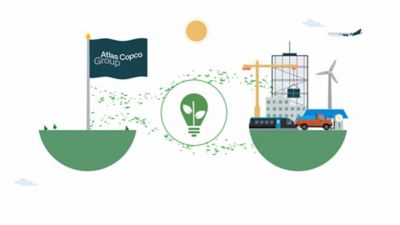Episode 13 - Enabling a Skills-First Organization
With the global economy experiencing massive change, upskilling and reskilling has taken on a renewed sense of urgency. Success through these transitions requires shifts in thinking about how recruitment and people development are done.
A summary of what’s included
In this episode of Atlas Copco Group People Podcast, Cecilia Sandberg, SVP Chief Human Resources Officer and Dorna Eriksson Shafiei, Vice President Talent & Learning, explore the topic of enabling a Skills-First Organization. What is it? Why should we care? And how do we get there?
“Recent studies indicate that the most fundamental building block of work—the job—could actually be holding many organizations back. That’s why we see more organizations starting to experiment with and apply skills-based models to meet the demand for agility and equity,” says Dorna.
A Skills-First organization is one that places skill development and proficiency at the heart of its operations. Rather than focusing solely on job titles and traditional roles, the focus is on prioritizing the growth of skills across the entire workforce. This approach encourages a dynamic and adaptable workforce capable of addressing new challenges as they come.
“When we structure work around skills, it opens up many more possibilities for internal mobility and growth. Individuals are no longer slotted into positions according to their title, as so many skills are actually transferrable,” reflects Cecilia.
Tune in and learn about how the skills you cultivate today shape your opportunities for the future!




